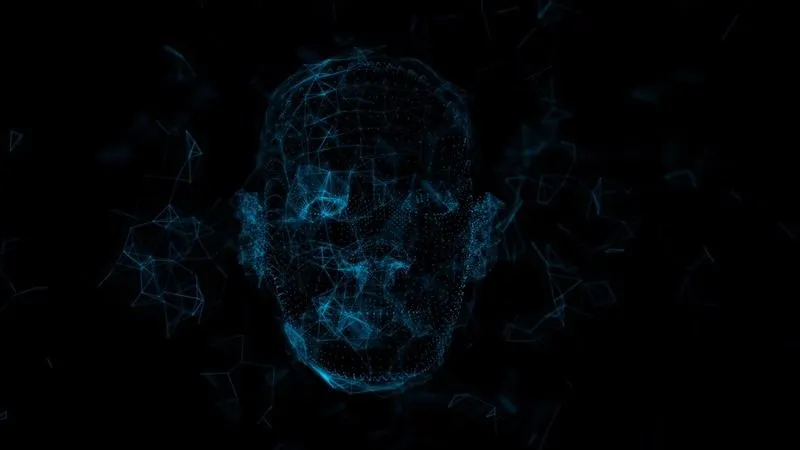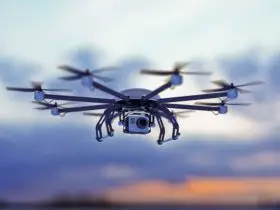Facial recognition technology has helped the world in many ways, from recognizing criminals to the detection of the blood pressure and pain levels from the patient’s face. There are, however, some ethical issues and concerns associated with the use of this technology. Some of these concerns are severe, which is why the European Commission ruled to restrict the use of facial recognition tech in 2020. [1]
The use of this technology is also completely banned or restricted in many other areas due to certain ethical issues. In this blog, we will look at the ethical issues and implications that are associated with facial recognition technology.
Ethical issues of using facial recognition technology

Facial recognition technology is useful in various application areas, but it can also be used for other purposes. For example, the technology can be used to identify people in a crowd or to monitor and track people’s movements.
There are a number of ethical concerns that are associated with the use of this technology, including privacy concerns, surveillance concerns, and human rights concerns. Here are some ethical issues and implications that are associated with the use of facial recognition technology.
#1 Safety in Data Handling
The data that is collected from various sources like the cameras in banks, streets, shopping malls, etc. is hosted on local servers which have low-grade security and thus less data protection.
Hackers can easily access these biometric data and use them for unethical purposes. The protection and IT help for the facial recognition system that is kept on various local servers aren’t adequate.
The data storage practices on local servers are making facial recognition a big challenge. Because organizations have a hard time keeping track of this information, they are unable to guarantee network security and data privacy. That is why hackers are able to access such sensitive data and use it in illegal and unethical ways.
#2 Inaccuracy in the Face Recognition Technology
Although face recognition technology has advanced significantly, some tests and studies show that it still has some flaws which result in failure to recognize children’s faces, elderly people’s faces, and darker-skinned individuals’ faces.
Tests have proved that this technology detects the faces in brighter skin complexions with more than 90% accuracy but there is a great error in face detection of darker people. [2]
#3 Face Recognition Accuracy Issues in Finance
The new application of this technology for buying, purchases, and other purposes has raised concerns about the accuracy of this technology. The inability of facial recognition technology to identify individuals with higher accuracy, for example, in money transfer apps, might result in substantial financial losses.
In financial applications, even small mistakes in the facial recognition device’s engineering design may result in significant financial losses. Therefore, engineers who design the recognition systems have an ethical responsibility to take into account the accuracy of the facial recognition algorithm, when designing, testing, and deploying these systems.
#4 Criminal Detection Data Storage Problems
The people who are suspicious of a felony are recorded by the cops or a relevant agency. Their facial data is saved and utilized for criminal identification and recordkeeping purposes.
Even, when the suspect is actually innocent and is subsequently released, his data will be kept by the department responsible for his arrest. The use of facial recognition technology raises major ethical and privacy issues in situations like this.
#5 Privacy Concerns of the Public
Due to privacy concerns, approximately 43,000 European citizens signed a petition called the “Reclaim Your Face”. [3] In this petition, they asked for a ban on face recognition practices in European Union.
The people were not agreeing to provide their facial recognition data to any agencies or organizations for any purpose as it is against their privacy and human rights.
This technology is not ethical to utilize for public surveillance, and for mass face detection without consent, as evidenced by that petition. The people’s consent is a major issue in this regard and massive resistance can arise because of privacy concerns.
#6 Hacking Sensitive Data from Cloud Storage
Clouds are considered secure storage of data in comparison with local servers. However, prior events have shown that the data stored in the cloud may be compromised. In just 120 seconds, researchers from the annual Black Hat hacker conference in Las Vegas have broken into an iPhone’s FaceID user authentication.
That describes how sensitive the data storage can be and how dangerous it can be if the data gets hacked. Not only the privacy of the users gets in danger, but the company’s reputation also gets affected badly. This is why the use of facial recognition is restricted in some applications.
Data storage needs to be more secure in order to advance facial recognition for good causes.
#7 Face Recognition Accuracy Issues in Health care
Facial recognition is being used for a variety of applications in the health care sector, including blood pressure monitoring, diagnosing illnesses, and pain levels. It is also being used for treatment, diagnosis, and other medical purposes, so the accuracy of this technology is a big concern.
Research has shown that this technology has inaccuracy and a significant amount of error, therefore, when it is used in healthcare, there are some ethical concerns.
The smallest mistake in any diagnosis might result in severe health damage for the patient. Therefore, medical practitioners must exercise caution when utilizing this technology to treat and diagnose patients.
#8 Personal Data Risks Associated with Face Recognition
People have been using face detectors in their cell phones, laptops, and personal computers for several years. Because PCs, laptops, and cell phones all contain personal data and information, this technology has created a number of risks to data privacy.
Identical twins, as well as individuals with similar facial features, can readily access the information of a person by taking advantage of the flaws in face recognition technology. As a result, the data on a PC or cellphone may be accessed in unethical ways.
Also read: Ethical Dilemmas in Engineering and Examples
Conclusion
Facial recognition biometric technology is becoming increasingly popular in areas like criminal detection and public safety. However, this technology also raises a number of ethical concerns, including the lack of consent from individuals, data storage problems, hacking risks, accuracy problems, and personal data risks. These concerns must be addressed in order to ensure that the benefits of facial recognition technology are maximized while the risks are minimized.
Ethical considerations such as AI ethics are an important part of the development and use of this technology. Facial recognition and artificial intelligence technology may be used for a wide range of applications and offers enormous advantages if the challenges and ethical issues are addressed properly.
References
[1] https://www.bbc.com/news/technology-51148501
[2] https://algorithmwatch.org/en/reclaim-your-face-campaign/
[3] https://www.g2.com/articles/facial-recognition-statistics
[4] https://ink.library.smu.edu.sg/cgi/viewcontent.cgi?article=6342&context=sis_research




![Types of Engineers and What they Do [Explained]](https://www.engineeringpassion.com/wp-content/uploads/2022/04/types-of-engineers-and-what-they-do-280x210.jpg)








Leave a Reply